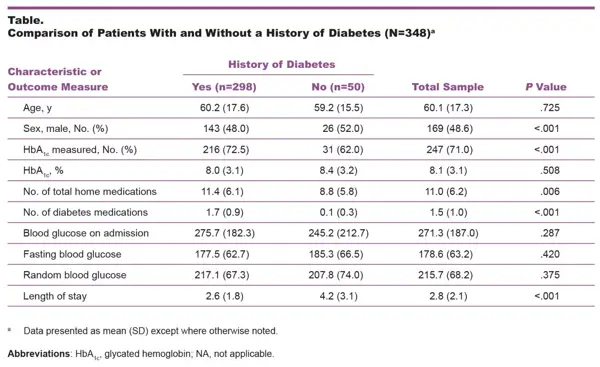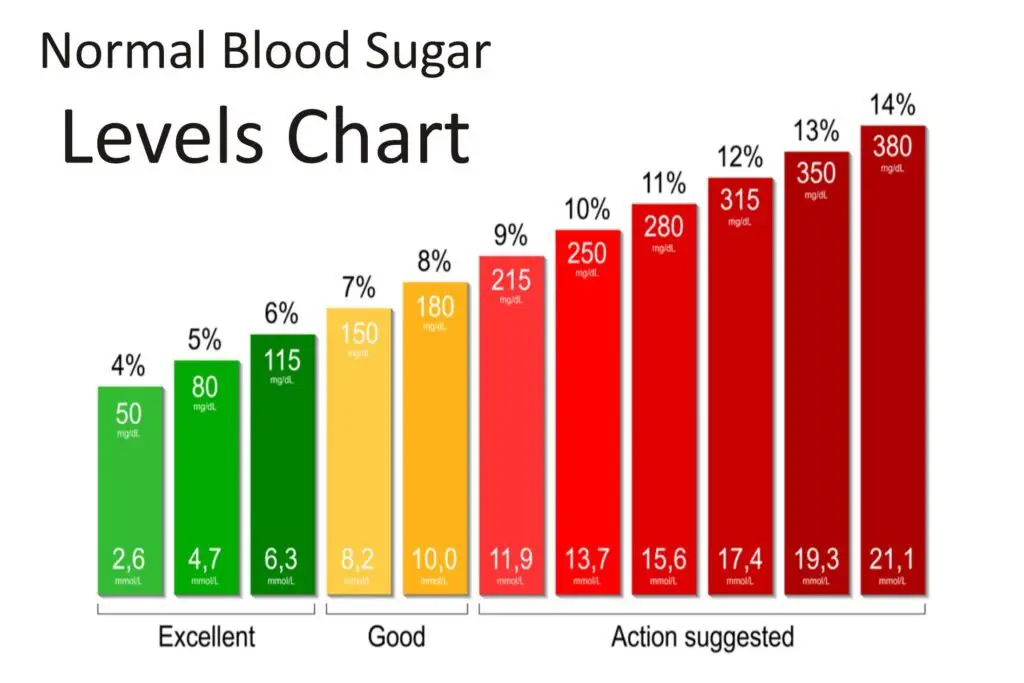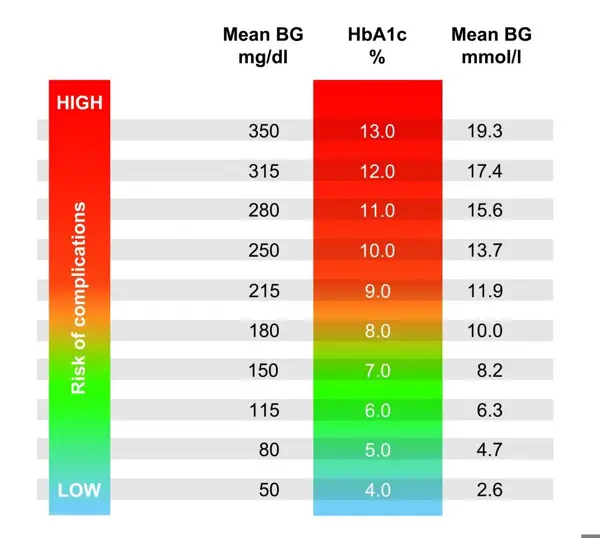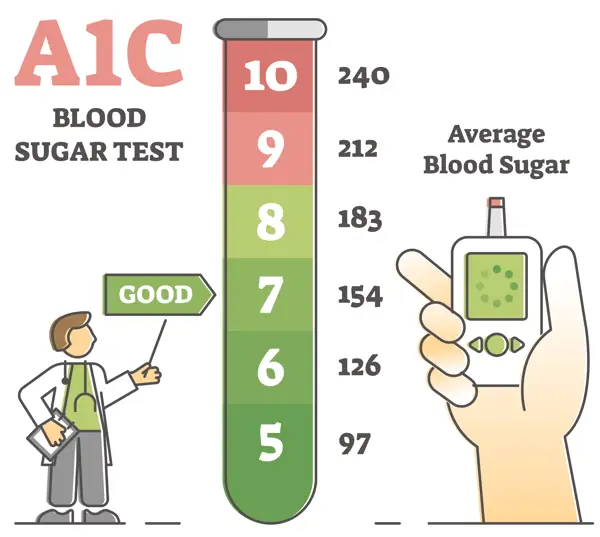Table of Contents
- Introduction
- Blood Sugar Levels
- Importance of Healthy Blood Sugar Levels
- Factors Affecting Blood Sugar Levels
- Monitoring Blood Sugar
- Tips for Maintaining Healthy Blood Sugar
- FAQ
Introduction
Welcome to our comprehensive guide on understanding normal blood sugar levels. In this article, we will explore the optimal range for blood glucose and delve into why it is crucial to maintain these levels for overall well-being.
Blood Sugar Levels
Learn about the normal values of blood sugar levels and understand the differences between fasting blood sugar, postprandial (after-meal) blood sugar, and HbA1c levels.
Blood sugar levels refer to the amount of glucose (sugar) present in the blood. Glucose is the primary source of energy for our body's cells and plays a crucial role in maintaining overall health.
Normal Blood Sugar Levels
Normal blood sugar levels are essential for optimal bodily functions. The following values are generally accepted as normal:
- Fasting blood sugar (measured after not eating for at least 8 hours): < 100 mg/dL (5.6 mmol/L)
- Postprandial blood sugar (measured 1-2 hours after a meal): < 140 mg/dL (7.8 mmol/L)
It is important to note that these values may slightly vary depending on the individual and the laboratory performing the test. However, these ranges are widely recognized as healthy blood sugar levels.
Monitoring Blood Sugar Levels
Regularly monitoring blood sugar levels is crucial for individuals with diabetes or those at risk of developing it. By tracking blood sugar levels, individuals can make necessary adjustments in their diet, medication, or physical activity to maintain optimal glucose control.
Consequences of High or Low Blood Sugar
Both high and low blood sugar levels can have significant consequences on overall health. Elevated blood sugar levels (hyperglycemia) can lead to complications such as diabetes, heart disease, and kidney problems. On the other hand, low blood sugar levels (hypoglycemia) can cause dizziness, confusion, and in severe cases, loss of consciousness.
Maintaining Healthy Blood Sugar Levels
To keep blood sugar levels within the normal range, individuals should follow a balanced diet rich in whole grains, lean proteins, and fruits and vegetables. Regular exercise, managing stress, and getting adequate sleep also play important roles in maintaining healthy blood sugar levels.
It is important to consult with a healthcare professional for personalized guidance on maintaining optimal blood sugar levels based on individual health conditions and requirements.

Importance of Healthy Blood Sugar Levels
Discover the impact of uncontrolled blood sugar on various aspects of health, such as cardiovascular health, kidney function, and more. Understand why maintaining healthy blood sugar levels is crucial for individuals with diabetes and even those without the condition.
Maintaining normal blood sugar levels is crucial for overall health and well-being. Blood sugar, also known as blood glucose, refers to the sugar that circulates in our bloodstream. It is the primary source of energy for our body's cells, and its levels must be carefully regulated.
When blood sugar levels are within the normal range, our body functions optimally. Here are some key reasons why healthy blood sugar levels are important:
- Energy Balance: Balanced blood sugar levels ensure a steady supply of energy to our body's cells. This helps in maintaining an optimal energy level throughout the day, supporting our physical and mental activities.
- Preventing Diabetes: High blood sugar levels over a prolonged period can lead to diabetes. By keeping blood sugar levels within the normal range, we reduce the risk of developing this chronic condition.
- Weight Management: Healthy blood sugar levels aid in weight management. When our blood sugar is balanced, we are less likely to experience sudden hunger pangs and cravings, which can lead to overeating and weight gain.
- Heart Health: High blood sugar levels can damage blood vessels and increase the risk of heart diseases. Maintaining normal blood sugar levels can significantly reduce the chances of cardiovascular problems.
- Brain Function: The brain requires a steady supply of glucose to function properly. Imbalanced blood sugar levels can negatively affect cognitive abilities, memory, and concentration. By maintaining healthy blood sugar levels, we support optimal brain function.
- Overall Well-being: Normal blood sugar levels contribute to our overall well-being and help prevent a variety of health issues. By prioritizing healthy blood sugar levels, we improve our quality of life and reduce the risk of complications.
It is important to regularly monitor and manage blood sugar levels through a balanced diet, regular exercise, and proper medical care. Consult with healthcare professionals for personalized guidance and to understand the appropriate normal range for your specific needs.

Factors Affecting Blood Sugar Levels
Explore the different factors that can influence blood sugar levels, including diet, physical activity, stress, medications, and hormonal imbalances.
Understanding the factors that influence blood sugar levels is essential for maintaining a healthy balance in your body. The normal range of blood sugar levels ensures the optimal functioning of your organs and helps prevent the onset of conditions like diabetes.
Diet
One of the major factors affecting blood sugar levels is the type and quantity of food you consume. Foods rich in carbohydrates like rice, bread, pasta, and sugary snacks tend to raise blood sugar levels quickly. On the other hand, consuming foods high in fiber, protein, and healthy fats helps regulate blood sugar levels and prevent spikes. Maintaining a balanced diet and avoiding excessive consumption of sugary foods is key to maintaining normal blood sugar levels.
Physical Activity
Engaging in regular physical activity plays a vital role in regulating blood sugar levels. Exercise helps your body use insulin more efficiently, thereby lowering blood sugar levels. Both aerobic exercises like running, swimming, and cycling, and strength training exercises contribute to better blood sugar control. Staying active for at least 30 minutes most days of the week is recommended for maintaining healthy blood sugar levels.
Stress
High stress levels can affect blood sugar levels. When stressed, your body releases stress hormones, such as cortisol, which can cause a rise in blood sugar. Finding effective stress management techniques like practicing meditation, deep breathing exercises, or engaging in activities you enjoy can help keep stress levels in check and maintain stable blood sugar levels.
Sleep
Getting enough quality sleep is essential for proper blood sugar control. Lack of sleep or poor sleep quality can disrupt hormone regulation, leading to increased insulin resistance and higher blood sugar levels. Aim for 7-8 hours of uninterrupted sleep each night to promote optimal blood sugar regulation.
Medication and Medical Conditions
Certain medications and underlying medical conditions can impact blood sugar levels. Some medications, such as steroids or diuretics, may increase blood sugar levels. Additionally, conditions like hormonal disorders or diseases affecting the pancreas, liver, or kidneys can also affect blood sugar regulation. Regular monitoring of blood sugar levels and consulting with a healthcare professional can help manage these factors effectively.
In conclusion, several factors, including diet, physical activity, stress, sleep, medications, and medical conditions, can influence blood sugar levels. By maintaining a balanced diet, engaging in regular exercise, managing stress, getting adequate sleep, and seeking appropriate medical advice, you can help keep your blood sugar levels within the normal range and ensure overall well-being.

Monitoring Blood Sugar
Learn about various methods of monitoring blood sugar levels, including self-monitoring with glucometers, continuous glucose monitoring (CGM) systems, and laboratory tests.
Monitoring blood sugar levels is crucial for individuals who want to maintain a healthy lifestyle and manage their diabetes effectively.
The normal range of blood sugar levels for most healthy adults is typically between 70-99 mg/dL (milligrams per deciliter) before meals or fasting. After meals, blood sugar levels can rise, but they should generally stay below 180 mg/dL.
To monitor blood sugar levels effectively, it is recommended to:
- Use a blood glucose meter or continuous glucose monitoring device.
- Take regular readings, especially before meals, and keep a log to track patterns.
- Consult with a healthcare professional to determine the appropriate target range for your specific health condition.
- Follow a healthy diet and engage in regular physical activity to help regulate blood sugar levels.
- Be aware of signs and symptoms of both high (hyperglycemia) and low (hypoglycemia) blood sugar levels and take appropriate actions when necessary.
By regularly monitoring blood sugar levels and making necessary adjustments in diet, medication, and lifestyle, individuals can better manage their blood sugar and reduce the risk of diabetes-related complications.

Tips for Maintaining Healthy Blood Sugar
Discover practical tips and lifestyle changes that can help individuals maintain optimal blood sugar levels. Learn about dietary recommendations, exercise routines, stress management techniques, and more.
1. Balanced Diet:
Eating a well-balanced diet is crucial in maintaining normal blood sugar levels. Include a variety of fruits, vegetables, whole grains, lean proteins, and healthy fats in your meals. Avoid excessive intake of sugary and processed foods.
2. Portion Control:
Controlling portion sizes helps prevent spikes and drops in blood sugar. Eat smaller, frequent meals throughout the day rather than consuming large portions in one go.
3. Regular Physical Activity:
Engaging in regular exercise, such as walking, swimming, or cycling, helps regulate blood sugar levels. Aim for at least 30 minutes of moderate-intensity activity most days of the week.
4. Hydration:
Stay adequately hydrated as water aids in maintaining blood sugar balance. Avoid excessive intake of sugary drinks and opt for water, herbal tea, or unsweetened beverages instead.
5. Limit Alcohol Consumption:
Excessive alcohol consumption can disrupt blood sugar levels. If you choose to drink, do so in moderation and avoid sugary mixed drinks.
6. Regular Monitoring:
Keep a check on your blood sugar levels regularly, especially if you have diabetes or a family history of diabetes. Regular monitoring can help you take necessary precautions and seek medical advice if needed.
7. Manage Stress:
High-stress levels can impact blood sugar control. Practice stress-management techniques like deep breathing, meditation, or engaging in activities that help you relax and unwind.
8. Get Adequate Sleep:
Proper sleep is essential for overall health, including blood sugar regulation. Aim for 7-9 hours of quality sleep each night.
9. Consult a Healthcare Professional:
If you are concerned about your blood sugar levels, it is advisable to consult a healthcare professional who can provide personalized guidance and advice based on your specific circumstances.
Remember, maintaining healthy blood sugar levels is important for your overall well-being and can help prevent various health complications in the long run.

Frequently Asked Questions (FAQ)
Q: What are the symptoms of high blood sugar levels?
A: Symptoms of high blood sugar may include frequent urination, excessive thirst, unexplained weight loss, fatigue, and blurred vision. It is essential to consult a healthcare professional for a proper diagnosis.
Q: Can low blood sugar levels be dangerous?
A: Yes, extremely low blood sugar levels (hypoglycemia) can be dangerous and may lead to symptoms such as dizziness, confusion, seizures, or loss of consciousness. It is important to seek immediate medical attention if experiencing severe hypoglycemia.
Q: Are blood sugar levels different for children and adults?
A: Blood sugar levels vary based on age, weight, and individual factors. While there are general guidelines, it is best to consult a healthcare professional for specific target ranges for children and adults.
Key Takeaways
- Maintaining normal blood sugar levels is vital for overall well-being and especially important for individuals with diabetes.
- Factors such as diet, exercise, stress, and medications can influence blood sugar levels.
- Regular monitoring of blood sugar levels is crucial for individuals with diabetes to manage their condition effectively.
- Adopting a healthy lifestyle, including a balanced diet and regular exercise, can help individuals maintain optimal blood sugar levels.
- Awareness of symptoms related to both high and low blood sugar levels is important for timely medical intervention.
- Blood sugar levels may vary depending on age, weight, and other individual factors. Consultation with a healthcare professional is recommended to determine personalized target ranges.
- Stay informed and proactive in managing blood sugar levels to ensure long-term health and well-being.
Frequently Asked Questions (FAQ)
- What are the symptoms of high blood sugar levels?
- Can low blood sugar levels be dangerous?
- Are blood sugar levels different for children and adults?



Recent Comments